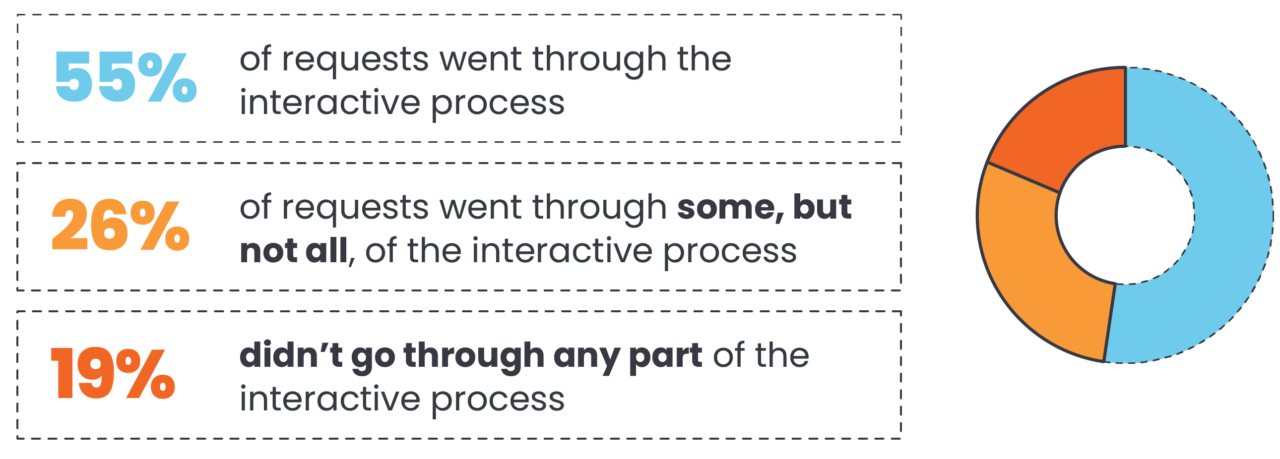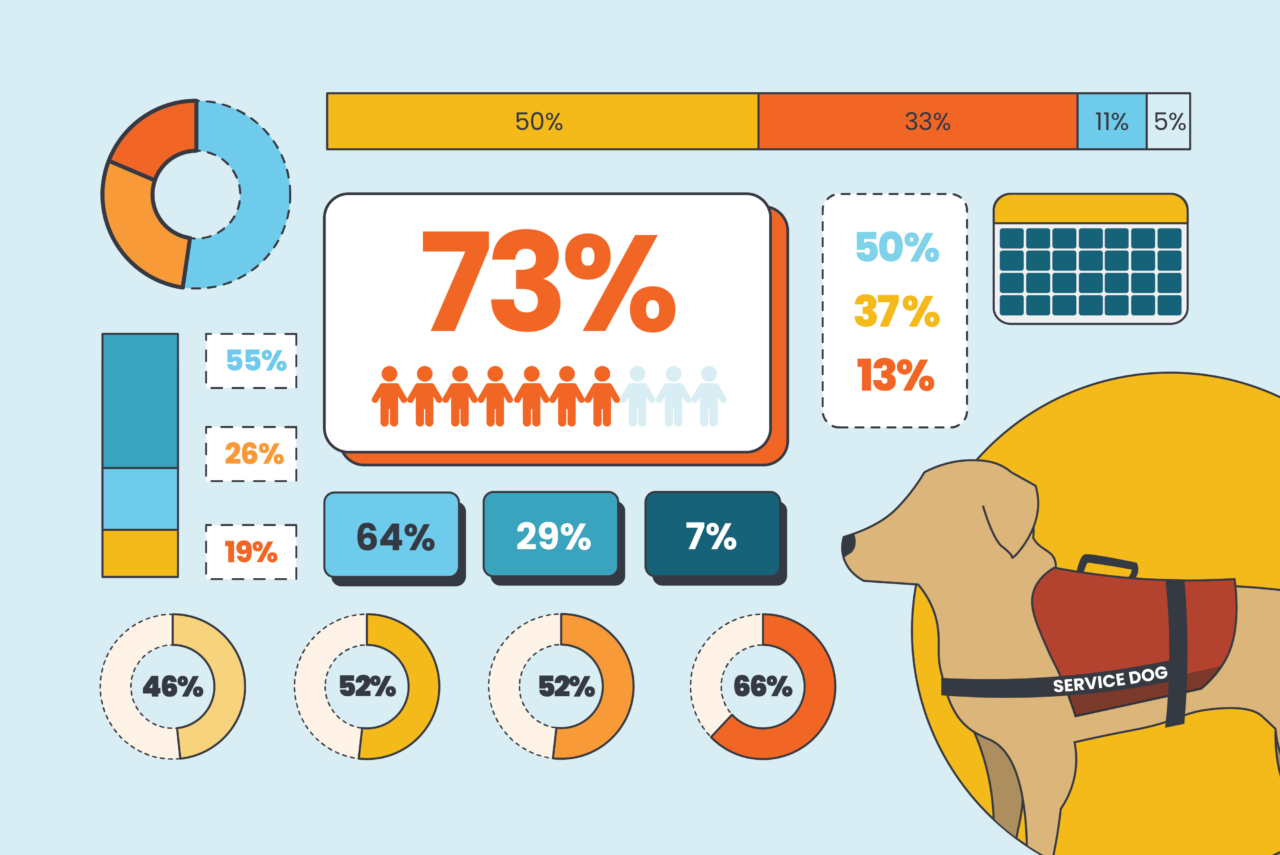To better understand current experiences around workplace accommodations, we surveyed 600 workers at organizations with over 5,000 total employees. In this report, we found numerous risks and opportunities in today’s employee accommodations programs. You can download the full report for detailed results and best practices, or an infographic for sharing.
Most employees feel comfortable requesting accommodations

In our survey, 71% of respondents felt comfortable or very comfortable requesting an accommodation at their organization. Employees are no longer feeling stigmatized by disabilities or by asking for support to do their best work. This means that requests are likely to increase over the coming years. To be ready to handle a potential increase in accommodations requests, HR teams should look for ways to streamline and automate their accommodations processes.
A majority of employees didn’t know everything that is needed to request an accommodation

To provide a supportive work environment and avoid potential lawsuits, it is incredibly important that each employee knows how to request an accommodation if they need one. The majority of employees in our survey, 73%, were only somewhat familiar or not at all familiar with the process for requesting a workplace accommodation. It’s even better to leverage both training and technology to make requesting an accommodation easy, fast, and painless.
Half of employees went directly to their supervisor to request an accommodation

When employees aren’t sure where to go to request an accommodation, they are most likely to just ask their supervisor. When we asked how accommodations were requested: 50% asked their manager, 33% reached out to HR, 11% used an online self-service portal, and 5% contacted an outsourcer.
This is why HR teams and senior leaders should make sure managers know exactly what to do every time a request is made. Ensure every frontline manager takes each and every accommodation request seriously and directs employees to the right HR or accommodation management resource.
The interactive process was completed only about half the time after an accommodation request was made

Many requirements and best practices surrounding ADA regulations can be vague, but one thing is clear: for every request for an accommodation that is made, employers must undergo an interactive process with the employee. However, in our survey, we found that only 55% went through the full interactive process, 26% only went through some parts of the process, and 19% didn’t go through the process at all.
With large HR teams and employee workforces, it can be a challenge to make sure the interactive process is documented and followed consistently every time. Accommodations management technology can prompt busy HR teams to go through the full process every time, centrally documenting it at every step.
More than a third of employees waited longer than 30 days for a decision – or never heard back at all

In our survey, 64% of respondents heard back in less than a month, but 29% waited longer than a month for a decision, and 7% never heard back about their accommodation request at all. It is critically important for HR to attend to incoming accommodations requests in a timely manner.
Employers can find themselves facing legal action if they take too long to respond to the initial request, don’t start the interactive process right away, or delay implementing an accommodation once it is approved. By improving your processes with internal timelines and technology, HR teams can make sure no case is delayed or gets lost in the shuffle.
Nearly half of respondents found many parts of the accommodations process somewhat or very difficult

If your organization is manually managing accommodations, it is all too easy to have a request slip through the cracks. With requests rising, it is easy for teams get overwhelmed with requests, particularly if they are responsible for more than disability and leave.
In our survey, the following percentages of respondents found many parts of the process somewhat or very difficult: requesting an accommodation (52%), providing documentation (46%), knowing how the process was proceeding (66%), and receiving the accommodation (52%).
Unfortunately, even an unintentional oversight carries major legal risks. To stay compliant, and provide a better experience for everyone involved, it is important for HR teams to look for ways to streamline and automate their employee accommodations program.
Conclusion
There are many benefits to having a robust, equitable, and personalized accommodations program. If an employee requests an accommodation – especially one that costs little to nothing to implement – it is an easy win to support them with what they need in a timely manner. They will end up more productive and be much more likely to stay loyal to your organization in the long run.
To learn more about ADA and how to improve your accommodations processes, you can browse a wealth of resources. You can also schedule a demo of AbsenceSoft to see a centralized, automated accommodations management platform in action.

